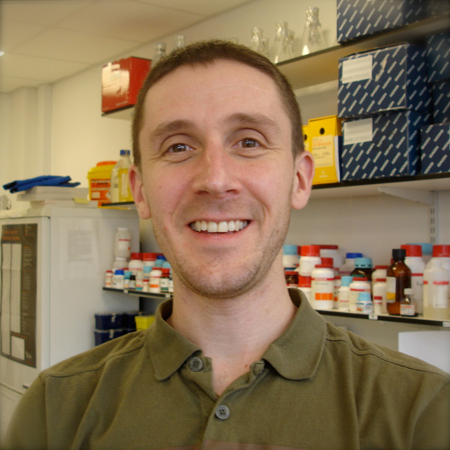Dr Stephen Royle will study the tiny fibres that make up the spindle
Dr Stephen Royle from the University of Liverpool’s Institute of Translational Medicine has been awarded a six-year Senior Cancer Research Fellowship to expand his work into how cell division impacts on cancer.
The award is part of an £11 million investment by Cancer Research UK to fund seven of the UK’s brightest minds in establishing, or developing, their own research groups in the study of some of the most challenging problems in understanding and treating cancer.
Human cells have 23 pairs of chromosomes containing genes – the instructions that tell cells what to do. Dr Royle is studying how cells make sure that each daughter cell receives one copy of each pair of chromosomes when they divide. Faults in this process can lead to cancer because cells receive the wrong number of genes.
Research at Liverpool will focus on spindles – small machines that cells build for themselves each time they divide. As the cell splits into two, the spindle helps ensure that both cells receive the correct number of chromosomes, making them crucial for successful cell division.
Dr Royle and the team are studying the tiny fibres that make up part of the spindle. They have developed ways to study these fibres in minute detail and find out what they are made of, and how they work. This research will help answer questions about how cancer develops, and could also pave the way for new treatments
Dr Royle said: “We work on the mechanisms of cell division and how it goes awry in cancer. With this award we will be able to focus on this important scientific problem for the next six years. We have made good progress to date and with the support of Cancer Research UK we aim to further understanding of how cancer develops.”
Dr David Scott, Cancer Research UK’s Director of Science Funding, said: “With the promise of new targeted treatments on the horizon and progress in immunotherapy now picking up pace, it’s an incredibly exciting time to be involved in cancer research.
“Investing in the next generation of cancer researchers is crucial if we are to continue the tremendous progress in beating cancer. We’re delighted to be supporting these researchers in forging their careers in this important field.”
